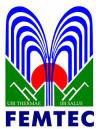
Jermuk 2016 (ARMENIA) Congress
The recent conference on climate change in Paris highlighted the possible significant increase in the incidence of diseases due to environmental changes, which may affect a variety of systems (respiratory, locomotor, and gastrointestinal) and millions of people, sometimes leading with fatal consequences (climatel@lists.iisd.ca ). Moreover, the World Health Organization (www.who.int ) implemented several workshops, whose outcome was a set of important scientific documents with annexed guidelines (http://www.who.int/healthinfo/sage/SAGE_Meeting_Dec2012_Sto neA.pdfa ) concerning the evaluation of objective/ subjective wellbeing as related to the socioeconomic environment. Alongside these issues, a variety of forms of tourism aimed at health, experience, and awareness are being developed. The Thermae and the relevant regions are, therefore, important players in this challenge, which can be considered as a major one for modern civilization, namely environmental, human, and personal development and sustainability. Thermal medicine, an old therapy that is currently applied in advanced countries according to strict scientific criteria, is now involved in this process to its full right and offers its potential for prevention, care, and rehabilitation to millions of patients all around the world. A stay at a thermal station, if well managed and organized, allows to “review” and “adjust” one’s lifestyles, which are responsible for most active diseases. The cultural and structural wealth of “thermal regions”, sometimes a true legacy of the past experienced through a modern approach, is a natural “soul medicine” complement, according to a modern interpretation of complex body systems and mind/body relations. All the above involves multiple components and also represents an important factor for the socioeconomic development of thermal regions. 7 Environment, health resorts, and tourism are the pillars of a complex structure that may affect the quality of life both in health and economic terms. However, their harmonious development calls for analyses, evaluations, and practical proposals. This is the purpose of the 69° Congress of FEMTEC, which gathers experts from all over the world to disclose new integrated development models to specialists and to the National Government Institutions in charge of health and territorial planning. The Congress takes place in the Republic of Armenia (https://it.wikipedia.org/wiki/Armeni ) and, more specifically, in its capital Yerevan and in the old thermal resort of Jermuk (www.jermukarmenia.com ). Armenia is a land that boasts a very old history and culture, where modernity goes hand in hand with a sound and well-established tradition of appropriate lifestyles that also provide for the use of thermal resources in full respect of regional specificities. Armenia gets deep into your soul with its “people-friendly” pace and all its values, and will offer a starting point for proactive thinking on the development of thermal medicine. Pr. Umberto Solimene FEMTEC President
The thermal cultural districts or, rather, the “thermal clusters” can be a real engine of economic development, not only of entire geographical areas in the environmental tourism sector, but also for the promotion of health and lifestyle .That emerges from the reports of experts from 20 countries that participated in the 69th Annual Congress of the World Federation of SPAs (FEMTEC) held in the Armenian capital Yerevan and in the popular resort Jermuk, from 2 to 7 October 2016. In his Introductory Report, the President of Femtec, Prof. Umberto Solimene, in presenting a summary of the activities carried out, highlighted the role of the Federation more and more entered in the care and development of SPA programs in collaboration with the National Institutions of the member countries. Albeit with different needs and goals, the Femtec experts actively collaborate in several countries, from Latin America (Cuba) to the Far East (Vietnam, China), through the Mediterranean (Tunisia area, Algeria) and the European Union (from Portugal to Russia). The appreciation of the Femtec activities is also evidenced by the membership requests of new countries, such as Morocco, Czech Republic and Grecia. Moreover, as absolute novelty, Nigeria has applied for membership as observer country. The works, divided into various sections, are collected in the book of acts of the Femtec site (www.femteconline.org ). All participants have enjoyed the great cultural program of the Conference, that made possible to explore the ancient culture and the spontaneous, warm Armenian hospitality.
